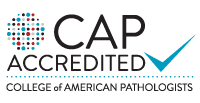
Click on a question below to see the answers.
After authorization by a physician, the patient receives an email with a link allowing them to sign up for the ActX Service. On the registration page, the patient views the ActX Privacy Policy, FAQs, Service Limitations, and the ActX Informed Consent Agreement, and pays for the service. The patient will receive a saliva collection kit at their home, and spit 1 cc into a tube. The kit is then mailed directly using a self-mailer to our CLIA-certified laboratory, where it is genotyped. The genetic data will then be securely uploaded for analysis and storage.
Good candidates for the ActX Service include, but are not limited to:
- Patients taking multiple medications
- Patients over 40 with two chronic medical conditions, such as diabetes, coronary heart disease, and obesity/hypertension
- Patients who do not have knowledge of their family health history
- Patients who have a personal or family interest in genetics
- Patients who want to be proactive in managing their health
If you use ActX inside an integrated Electronic Health Record, you will be notified of your patient's results availability within your EHR. If you use the ActX website, you will be notified that a patient's results are available via email. As an authorizing physician, you will receive your notification five days before your patient does.
Patients are notified that their results are available via email. They can then sign into their account on ActX.com to view their results. As their authorizing physician, you will receive your results notification five days before your patient does.
All data is encrypted end to end, with sophisticated authentication and audit procedures. Patient privacy is a primary goal, and the technology is designed to be HIPAA compliant.
Most patients have between three and five medication alerts. About 87% of patients have at least one medication related alert. Currently, about 3-4% of patients have an actionable, serious risk alert.
New medications and risks are added when new publications with sufficient evidence are released. ActX covers most U.S. prescription drugs for which there is sufficient evidence of a genomic effect. We test for a wide range of actionable, adult-onset disease risks that have been recommended by knowledgeable authorities.
Under the Genetic Information Nondiscrimination Act of 2008 (GINA), genomic information should not disqualify patients from health insurance, or affect its cost. Likewise, under U.S. federal law, employers should not discriminate against patients based on genomic information. However, it is important to note that U.S. federal law does not prevent other insurance companies such as life insurance, disability insurance, or long-term care insurance from using genomic information.
FIND OUT HOW THE ACTX SERVICE WORKS

